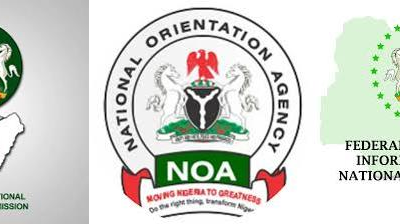The naira witnessed mixed performances across different trading platforms on Wednesday, reflecting ongoing volatility in Nigeria’s foreign exchange market.
According to data from FMDQ, the naira depreciated by N4.67 in the official market, sliding from N1,537.03 on Tuesday to N1,541.70 per dollar.
In contrast, the parallel (black) market saw a modest gain for the naira, appreciating by N5 to close at N1,660 on Wednesday, compared to N1,665 traded the previous day.
This divergence highlights the persistent challenges in Nigeria’s currency management.
Since the beginning of the week, the naira has faced continued depreciation against the dollar in the official market, while maintaining relative stability in the parallel market until Wednesday’s marginal improvement.
Financial analysts attribute the naira’s struggles in the official market to a mix of structural imbalances and insufficient dollar supply.
Dr. Adebola Oyetunji, an economist at Lagos Business School, explained, “The depreciation at the official market underscores the pressure from limited foreign inflows and high demand for dollars. However, the parallel market’s slight stability could suggest some speculative activities easing.”
On the other hand, some experts caution that stability in the black market may be short-lived if systemic issues like inflation and trade deficits are not addressed.
READ ALSO: Naira marginally declines amid currency reforms, global market dynamics
In a more positive development, Nigeria’s external reserves rose to $40.920 billion as of January 6, 2025. This marks a potential buffer for economic stability, although its impact on the currency remains uncertain.
Economic analyst Mrs. Funmi Akintola remarked, “The uptick in external reserves is encouraging, but without significant policy shifts to bridge the gap between official and parallel market rates, its effect on naira stability may be limited.”
As Nigeria navigates its foreign exchange challenges, experts urge the government to prioritize long-term solutions, including boosting non-oil exports, attracting foreign investments, and enhancing fiscal discipline.
These measures, they argue, could strengthen the naira and restore investor confidence in the economy.

 Comments and Issues1 week ago
Comments and Issues1 week ago
 Education1 week ago
Education1 week ago
 Comments and Issues1 week ago
Comments and Issues1 week ago
 Energy1 week ago
Energy1 week ago
 Comments and Issues7 days ago
Comments and Issues7 days ago
 Comments and Issues7 days ago
Comments and Issues7 days ago
 Football1 week ago
Football1 week ago
 Health6 days ago
Health6 days ago

